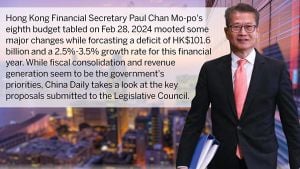Ukrainian President Volodymyr Zelensky has made headlines recently with his bold statements concerning the war with Russia and the nature of military aid from the United States. Speaking at the "Ukraine. Year 2025" forum, Zelensky expressed clear dissatisfaction with the financial conditions attached to U.S. support, declaring, "I know we had 100 (billion dollars from the U.S. – editor’s note) and I will not acknowledge 500, no matter what someone says." This remark emphasizes his refusal to view military assistance as debt, which he believes unfairly burdens Ukraine.
Zelensky elaborated on the terms of agreements concerning land and mineral wealth between the U.S. and Ukraine, implying they are heavily skewed against his nation. “I do not sign something which will be paid by ten generations of Ukrainians,” he asserted. His comments reflect the frustration felt by many Ukrainians who perceive the agreements as unjust.
One major concern for Zelensky and his administration is the absence of concrete security guarantees from the U.S. Despite receiving substantial military aid, Zelensky stated, “There are no specific security guarantees from the U.S.” This comment reveals the apprehension felt by Ukrainian leaders as they navigate relations with Western allies.
The president also reiterated his pragmatic approach toward dealing with the current U.S. administration, even responding to U.S. President Donald Trump's earlier remarks calling him a dictator. “Of course, the words directed at me by President Trump I would not, to say the least, call compliments. But why offend? The one who is a dictator would be offended by the word 'dictator.' But I perceive it this way,” Zelensky remarked, emphasizing his focus on protecting Ukraine's sovereignty over engaging in emotional responses.
Recently, Zelensky expressed willingness to resign from his role as president if it would facilitate peace for Ukraine or lead to NATO membership. “I do not dream of being president for decades,” he stated, emphasizing his commitment to achieving peace and stability. This statement came against the backdrop of the most extensive drone attack from Russia since the war began, coinciding with the third anniversary of the conflict.
During his press conference, Zelensky made clear his desire for the support of both the European Union and the United States. He referred to meetings scheduled with European leaders as potentially pivotal moments for Ukraine, exclaiming, “We need partners; we need help. But we cannot lose our independence and dignity.” His call for unity resonates as the global community watches the war continue to escalate.
Interestingly, tensions have emerged between Ukraine and the U.S. as high-level officials from both nations recently engaged with Russian representatives in Saudi Arabia to discuss peace negotiations—an engagement from which Ukraine was conspicuously absent. Zelensky expressed shock, labeling the occurrence as “surprising.” He indicated there is pressure on America to facilitate these discussions but noted the reluctance of some American officials, including Trump, who stated Zelensky has no leverage.
While Trump has advocated for America to reduce its involvement in the conflict significantly, Zelensky highlights the importance of maintaining strong ties with U.S. military support. He pointedly remarked, “We cannot buy the country,” when discussing potential agreements involving Ukraine’s mineral wealth. Yet, he softened his stance later, admitting readiness to make compromises if it would force Russia to cease hostilities.
Zelensky's insistence on securing U.S. security guarantees underlines the difficulty of trusting Russia's commitments, stating, “Because Russia cannot be trusted on its word.” He proposes NATO membership should be part of any future peace negotiations—a matter Zelensky believes should be firmly discussed.
Leaders across Europe responded to Zelensky's messages with calls for unity. Ursula von der Leyen announced discussions among European leaders about their unwavering support for Ukraine, both financially and military. "We talked about our unwavering support for Ukraine," she stated publicly, underscoring the collective effort to assist Ukraine during these challenging times.
United Nations Secretary-General Antonio Guterres echoed similar sentiments, stressing the urgency for a fair and sustainable peace. He noted, “A peace agreement must respect Ukraine's sovereignty, independence, and territorial integrity. Enough is enough after three years of death and destruction,” which reinforces the international community's commitment to resolving this conflict.
With Russian drone attacks intensifying, the need for strategic alliances grows more pressing for Ukraine. Reports state Russia launched its largest aerial assault yet, engaging 267 drones, of which 138 were downed. This fearsome display of aggression adds to the dire circumstances Zelensky faces as he seeks international support.
With these developments, Zelensky’s statements highlight the complexity of Ukraine’s current situation, balancing urgent military needs with the realities of international diplomacy. The president stands at the crossroads of potential peace, yet strives to maintain the dignity and independence of his nation amid overwhelming challenges from the aggressor to the east.



